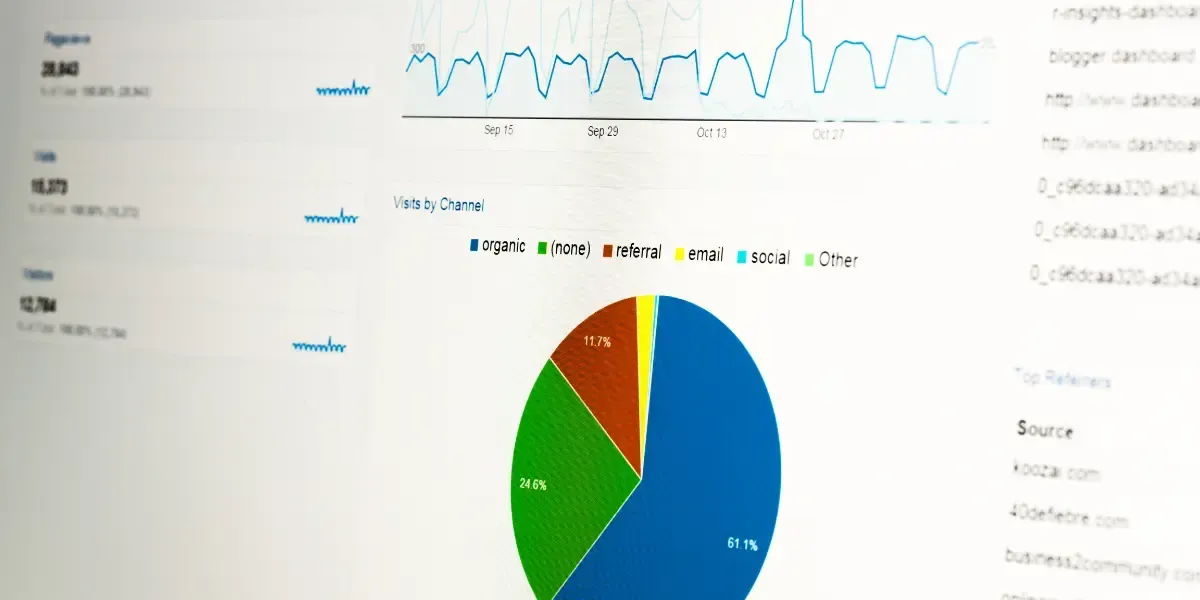How To Create A Pillar Page Strategy That Boosts Your Websites Seo

Are you looking for a strategy that can help boost your website’s SEO and increase organic web traffic? You may want to try creating a pillar page strategy.
Contents
- What is a Pillar Page?
- Deciding on Your Pillar Topics
- Deciding on Your Cluster Topics
- Optimising Your Pillars and Clusters
- Internal Linking
- Implementing a Pillar Strategy for your Website
Listen to this article
Search Engine Optimization (SEO) ensures your website follows certain guidelines to help it rank higher on search engines such as Google. While there are many ways of gaining traffic for your site, creating an effective pillar page strategy and committing to it will help you become an industry leader by capturing the majority of high-volume and trending topics. This blog will outline the steps towards a successful SEO-friendly pillar page strategy to attract visitors, build brand awareness, and boost your website’s organic reach. We’ll focus on why they are important, what factors to consider when creating them, and the best practices for executing this strategy.
What is a Pillar Page?
Have you ever come across a website that seemed to have all the answers on a specific topic? That’s because it probably had a pillar page. These pages are like a one-stop shop for all things related to a broad overarching topic. They provide a comprehensive overview of the subject, making it easy for users to find the information they need. But it’s not just about user experience. Pillar pages are also SEO-friendly, helping websites rank higher on search engines and attract more organic traffic. So, lets get ready to build a solid foundation for your website with pillar pages! Read on below to find out how.
Deciding on Your Pillar Topics
Keyword research is the first step to determining which topics will be the most suitable for pillar pages. By analysing your target audience’s search behaviour and queries, you can gain valuable insight into the topics they are most interested in and what they are searching for online. This information can then identify the most promising topics for pillar pages, ensuring that your content is relevant, valuable, and in demand. By focusing on popular topics with your target audience, you increase the chances that your pillar pages will attract organic traffic, generate leads, and establish your website as a trusted source of information in your niche. In short, keyword research is the key to finding the topics that will make your pillar pages successful.
Deciding on Your Cluster Topics
Now that we’ve broken down how to identify your pillar pages based on keyword research, we need to dive deeper into what clusters we will use within those pillars. Keyword research and relevance are crucial in determining what should be included within clusters of pillar pages for your website’s SEO pillar strategy.
This information can then be used to build clusters within pillar pages that focus on specific themes and subtopics related to your broad topic. Suppose we use our website as an example. In that case, we have the pillar page ‘SEO‘, which then has subsidiary cluster pages discussing location specific SEO services, such as SEO Auckland and SEO Wellington.
To boil it down for you, a pillar page is the cornerstone of your website’s content strategy, serving as an overarching guide to a particular topic. Cluster pages are then created to support and expand on the pillar page’s information, and sub-clusters are even more specific, targeted pages that provide even more detail and context. This structure helps to create a cohesive and organised website while improving search engine optimisation.
Optimising Your Pillars and Clusters
Your website’s title tags, meta descriptions, H1s, and page copy are all important elements that can impact your search engine rankings and help you attract organic traffic. By optimising these elements around your chosen keywords, you can ensure that your pillar and cluster pages are highly relevant to the queries of your target audience and that they provide valuable information that meets their needs.
A well-optimized title tag and meta description can improve website traffic & click-through rates while including relevant keywords in H1s and page copy can help search engines understand the context and relevancy of your content. Optimising these elements around your chosen keywords can help you get the most out of your pillar and cluster pages and take your website’s SEO to the next level.
Internal Linking
Once the page copy for your pillar and cluster pages has been optimised, it’s time to connect everything with internal linking. Internal linking refers to linking one page on your website to another, helping users navigate your content and search engines understand the structure of your site. By linking your pillar and cluster pages together, you can create a clear information hierarchy and make it easy for users to find related content. This improves the user experience and helps search engines understand the relationship between different pages on your site.
These are just a few examples of how internal linking can benefit your website:
- Navigation – Internal links help visitors navigate your website, making it easier to find the information they’re looking for and explore related content.
- Search Engine Optimization – Internal links signal to search engines the hierarchy and structure of your website, helping to improve its relevance and authority for relevant search queries.
- Relevance – By linking related pages together, internal links help establish the relevance of your website for specific topics, making it easier for visitors and search engines to understand the purpose and focus of your site.
- Reinforced Content – By linking to related pages within your website, you support the content on your pillar page, providing additional context and information for visitors.
- Increased Time on Site – Internal links can encourage visitors to stay on your website longer by providing access to additional relevant content, improving engagement and reducing bounce rates.
Implementing a Pillar Strategy for your Website
To sum it all up, creating a pillar page strategy can have a significant impact on the SEO of your website. By performing keyword research, determining topic clusters, optimising your content, and using internal linking, you can create a comprehensive and organised website that provides value to your target audience and ranks higher on search engines.
By following these best practices, you can attract more organic traffic, build brand awareness, and establish your website as a trusted source of information in your niche. Investing in a solid pillar page strategy can set your website on the path to success and establish a strong foundation for growth and success in the future.
FAQ
How do I research and choose the right topic for my Pillar Page?
To choose the right topic for your Pillar Page, identify your target audience, use keyword research tools, analyse competitors’ content, evaluate which topics align with your business goals, and select a topic that is broad and specific enough to provide value and attract your target audience.
How do I link my Pillar Page to other relevant pages on my website?
To link your Pillar Page to other relevant pages on your website, create subtopic pages, link each subtopic page back to the main Pillar Page, link relevant pages to the Pillar Page and subtopic pages, and use descriptive and relevant anchor text for each link. This creates a cohesive and well-structured website, boosting SEO and improving the user experience.
Digital Blog












